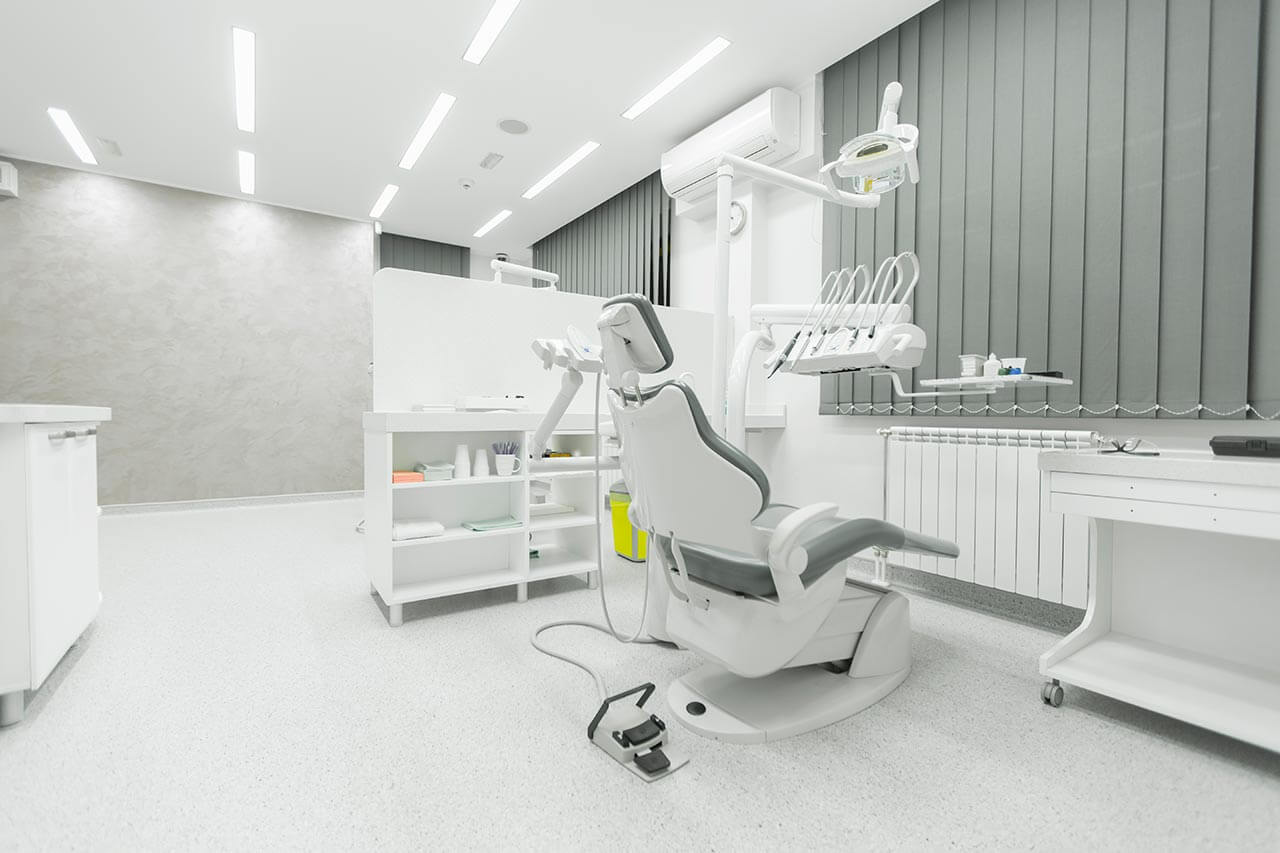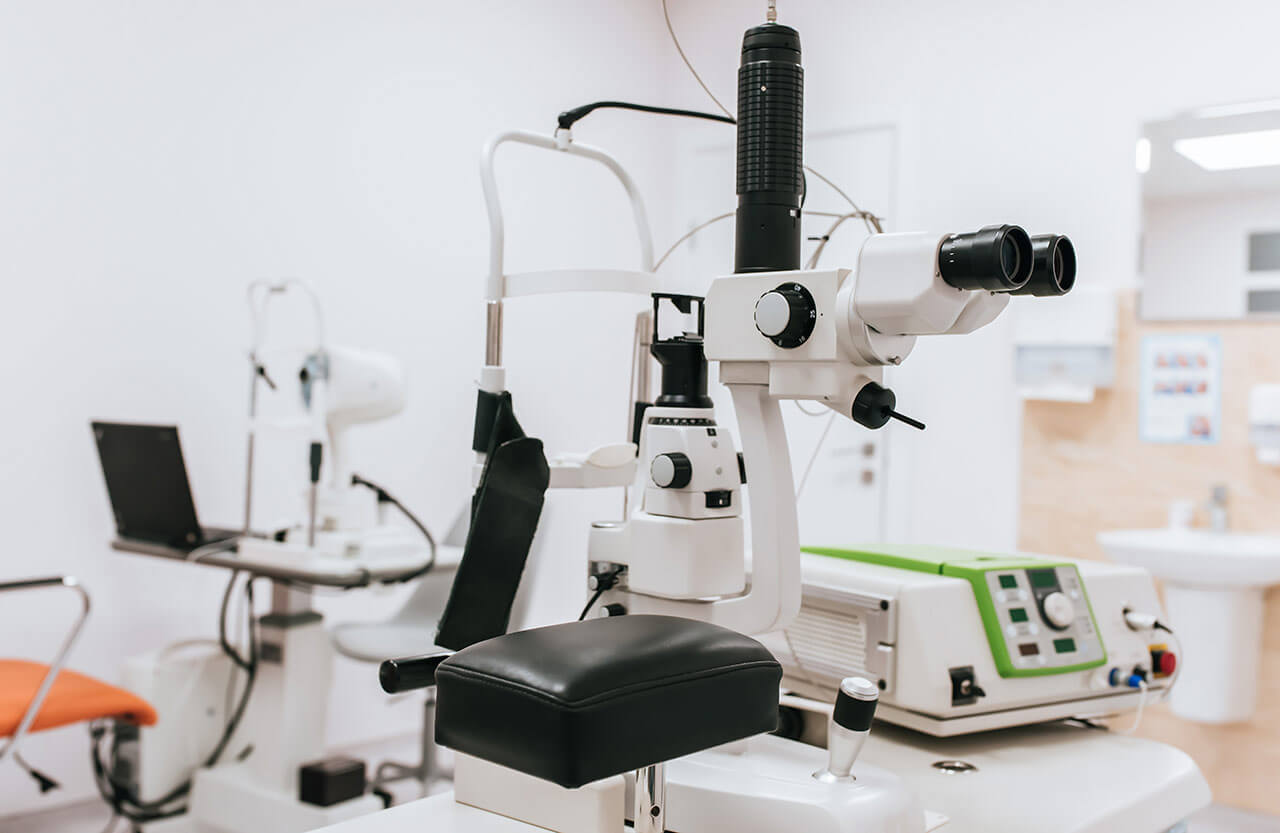
The program includes:
- Initial presentation in the clinic
- clinical history taking
- review of medical records
- physical examination
- laboratory tests:
- complete blood count
- general urine analysis
- biochemical analysis of blood
- inflammation of indicators (CRP, ESR)
- indicators of blood coagulation
- gynecological examination
- ultrasound scan: pelvis, abdomen
- preoperative care
- da Vinci treatment
- symptomatic treatment
- control examinations
- the cost of essential medicines and materials
- nursing services
- full hospital accommodation
- explanation of future recommendations
How program is carried out
During the first visit, the physician will conduct a clinical examination and go through the results of the available diagnostic tests. After that, you will undergo the necessary additional examination, such as the assessment of liver and kidney function, ultrasound scan of the abdominal and pelvic organs. Based on the results of the examination, the physician will choose the surgical technique and the type of anesthesia.
Surgery with the da Vinci robot starts with general anesthesia. After anesthesia, the surgeon makes small incisions through which the manipulators of the da Vinci robot and a video camera are inserted into the pelvic cavity. With the help of manipulators, the surgeon fixes the prolapsed pelvic organs in the physiological position, and the video camera continuously transmits a three-dimensional image of the operating field in 12-fold magnification to the monitor.
To fix the pelvic organs, the surgeon can use own muscles and ligaments of the vagina, uterus, rectum and other organs, or mesh prostheses. The use of mesh implants improves the functional outcomes of the operation and reduces the risk of recurrence.
After the completion of the operation, you will be transferred back to the ward, under the supervision of the attending physician and nursing staff. Due to the minimal invasiveness of the operation and the short duration of general anesthesia, you will not need to stay in the intensive care unit for a long time.
Finally, the attending physician will evaluate the results of control examinations, schedule the date of discharge from the hospital and give you detailed recommendations for further follow-up and treatment.
Required documents
- Medical records
- Pelvic ultrasoud (if available)
- Pelvic MRI/CT scan (if available)
Service
You may also book:
 BookingHealth Price from:
BookingHealth Price from:
About the department
The Department of Gynecology, Gynecologic Oncology, Urogynecology and Obstetrics at the Memorial Atasehir Hospital Istanbul offers the full range of high-quality medical services for the prevention, diagnostics and treatment of diseases of the female reproductive system. The department's specialists are distinguished by their rich and successful experience in the treatment of malignancies of the female reproductive organs. In addition, the department provides top-class obstetric services – integrated management of pregnancy, childbirth and postnatal care for mother and baby. The department's obstetricians also specialize in the management of high-risk pregnancies and multiple pregnancies. The department has state-of-the-art diagnostic equipment for comprehensive assessment of the state of the female reproductive system, as well as cutting-edge technologies for sparing surgical treatment using laparoscopic, robotic and transvaginal surgical techniques. The excellent medical and technical base combined with the high professionalism of the medical team guarantees effective treatment of even the most complex gynecologic diseases. The department is headed by Prof. Dr. med. Tolga Ergin.
One of the most important areas of clinical practice is the prevention, diagnostics and treatment of malignant tumors of the reproductive system in women. The department's gynecologists admit patients with uterine, cervical, ovarian, fallopian tube, vulvar and vaginal cancers. These are complex pathological conditions, which require a comprehensive interdisciplinary approach and a proper combination of therapeutic methods. The department's medical team has the necessary competence and skills for the highly effective cancer treatment. The doctors adhere to current clinical protocols and recommendations of professional societies. As a rule, the first line therapy is a surgical resection of a malignant tumor. The preference is always given to sparing interventions, which facilitate rapid recovery of the patient and reduce the risk of complications, including infectious ones. Depending on the clinical indications, the treatment regimen is complemented by chemotherapy and/or radiation therapy, which may be performed before or after the intervention. Hormone therapy, immunotherapy, targeted therapy and other techniques are also applied. When treating cancer in women of childbearing age, the department's doctors prefer methods, which allow them to preserve reproductive function. During the therapeutic process, the patients also receive psychological care, which is aimed at accepting the diagnosis and overcoming the emotional distress caused by the disease.
The department's specialization is not limited to cancer treatment. The patients with general gynecological pathologies also receive competent medical care here. The team of the department's gynecologists consults women with uterine fibroids, polycystic ovary, endometriosis, menstrual irregularities, menopause, impaired female sex hormone levels, infectious diseases and other pathologies. To detect these pathologies, the doctors conduct diagnostics, which includes clinical examination, laboratory tests, ultrasound examinations and other procedures. The optimal treatment regimen is developed according to the diagnostic results.
The range of the department's gynecological services is complemented by the diagnostics and treatment of urogynecological diseases in women, including all types of urinary incontinence and pelvic organ prolapse. The department carries out urine and blood tests, ureteroscopy, cystoscopy, ultrasound scanning of the abdominal cavity and pelvic organs. The required scope of therapeutic measures is determined depending on the complexity and stage of the disease. At the initial stages of urinary incontinence, it is enough to have drug therapy and a special set of exercises to strengthen the muscles of the pelvic floor, while the advanced types of pathology require surgical treatment. The department's specialists perform TVT and TOT sling surgical procedures, corrective surgical procedures. The treatment tactics are determined individually for each patient.
In addition to the diagnostics and treatment of gynecological diseases, the department's specialists provide all types of obstetric services in compliance with the recommendations and standards of modern medicine. The department provides integrated management of pregnancy, childbirth and postpartum care. The department's doctors guarantee the highest safety during childbirth for both mother and baby. If necessary, they use acupuncture, aromatherapy, relaxation baths, massages, epidural anesthesia and other methods for pain relief to maximize the comfort of the woman during childbirth. With appropriate clinical indications, C-section is performed.
The department's main clinical focuses include:
- Diagnostics and treatment of oncological diseases of the female reproductive system
- Uterine cancer
- Cervical cancer
- Ovarian cancer
- Fallopian tube cancer
- Vulvar cancer
- Vaginal cancer
- Diagnostics and treatment of benign diseases of the female reproductive system
- Uterine fibroids
- Polycystic ovary syndrome
- Endometriosis
- Menstrual irregularities
- Menopause
- Impaired female sex hormone levels
- Infectious diseases of the female reproductive system
- Diagnostics and treatment of urogynecologic diseases
- All types of urinary incontinence, including stress incontinence, urge incontinence, mixed urinary incontinence
- Pelvic organ prolapse
- Obstetric services
- Integrated management of pregnancy, including high-risk pregnancies and multiple pregnancies
- Childbirth (natural childbirth and C-section)
- Postpartum care for mother and baby
- Other medical services
Curriculum vitae
Professional Career
- Since 2011 Head of the Department of Gynecology, Gynecological Oncology, Urogynecology and Obstetrics at the Memorial Atasehir Hospital Istanbul, Istanbul, Turkey.
- 2009 - 2010 Lecturer at the Faculty of Medicine, Acıbadem University School of Medicine, Istanbul, Turkey.
- 2003 - 2010 Physician in the Department of Gynecology and Obstetrics, Acibadem Hospital, Istanbul, Turkey.
- 1998 - 2003 Physician in the Department of Gynecology and Obstetrics, Başkent University Hospital, Ankara, Turkey.
- 1996 - 1997 Physician in the Department of Gynecology and Obstetrics, General Hospital, Ankara, Turkey.
Higher Education and Postgraduate Training
- 1992 - 1996 Highly specialized training in Gynecology and Obstetrics, Dr. Zekai Tahir Burak Women's Health Research and Education Hospital, Istanbul, Turkey.
- 1985 - 1991 Study of Human Medicine, Faculty of Medicine, Hacettepe University, Istanbul, Turkey.
Scientific Publications
- 17 articles in international and 39 articles in Turkish journals.
- 2 book chapters, 3 book translations.
Memberships in Professional Societies
- Turkish Society of Obstetrics and Gynecology.
- Istanbul Society of Obstetrics and Gynecology.
- Turkey Maternal Fetal Medicine and Perinatology Association.
- Turkish German Gynecological Association.
- Turkish Urogynecology and Pelvic Reconstructive Surgery Association.
Photo of the doctor: (c) Memorial Ataşehir Hospital
About hospital
The Memorial Atasehir Hospital Istanbul is a private medical complex, within the walls of which the patient is expected to receive excellent medical care and responsive care. The medical complex is part of the Memorial Healthcare Group, which consists of 14 hospitals that provide a wide range of services.
The hospital began its work in May 2008 and today enjoys the status of one of the best medical facilities in Istanbul. The medical center specializes in ophthalmology, plastic surgery, dentistry and reproductive medicine, cardiac surgery, oncology, etc. The hospital also includes an advanced Transplant Center – the success rate of liver transplantation here is 99%, kidney – 93.5%. Clinical practice has been awarded the prestigious Joint Commission International (JCI) certificate, which confirms the highest standards of patient service quality and excellent treatment success rates.
The hospital is open 24 hours a day, 7 days a week to provide patients with comprehensive and urgent treatment. It has a progressive infrastructure, state-of-the-art medical and technical base for high-precision diagnostics, effective conservative and surgical treatment, as well as all conditions for the best possible patient comfort.
The health of patients is in good hands of exclusively highly competent doctors who have received medical education at the best universities in Turkey, and have also completed numerous internships in leading hospitals in Europe and the United States. The specialists keep pace with cutting-edge innovations in medicine and seek to heal patients even with the most complex pathologies.
Photo: (c) depositphotos
Accommodation in hospital
Patients rooms
The patients of Memorial Atasehir Hospital Istanbul live in comfortable single or double rooms made in a modern design. The standard patient room includes a comfortable automatically adjustable bed, a bedside table, a wardrobe, a telephone and a TV. Each patient room has an ensuite bathroom with shower and toilet. To provide maximum convenience for patients, the patient rooms also have Wi-Fi.
Meals and Menus
The patient and the accompanying person are offered tasty and balanced three meals a day. If for some reason you do not eat all foods, you will be offered an individual menu. Please inform the medical staff about your food preferences prior to treatment.
Further details
Standard rooms include:
Accompanying person
During the inpatient program, the accompanying person can live with the patient in a patient room or a hotel of his choice. Our managers will help you choose the most suitable option.
Hotel
During an outpatient program, the patient can stay at the hotel of his choice. Our managers will help you choose the most suitable option.




